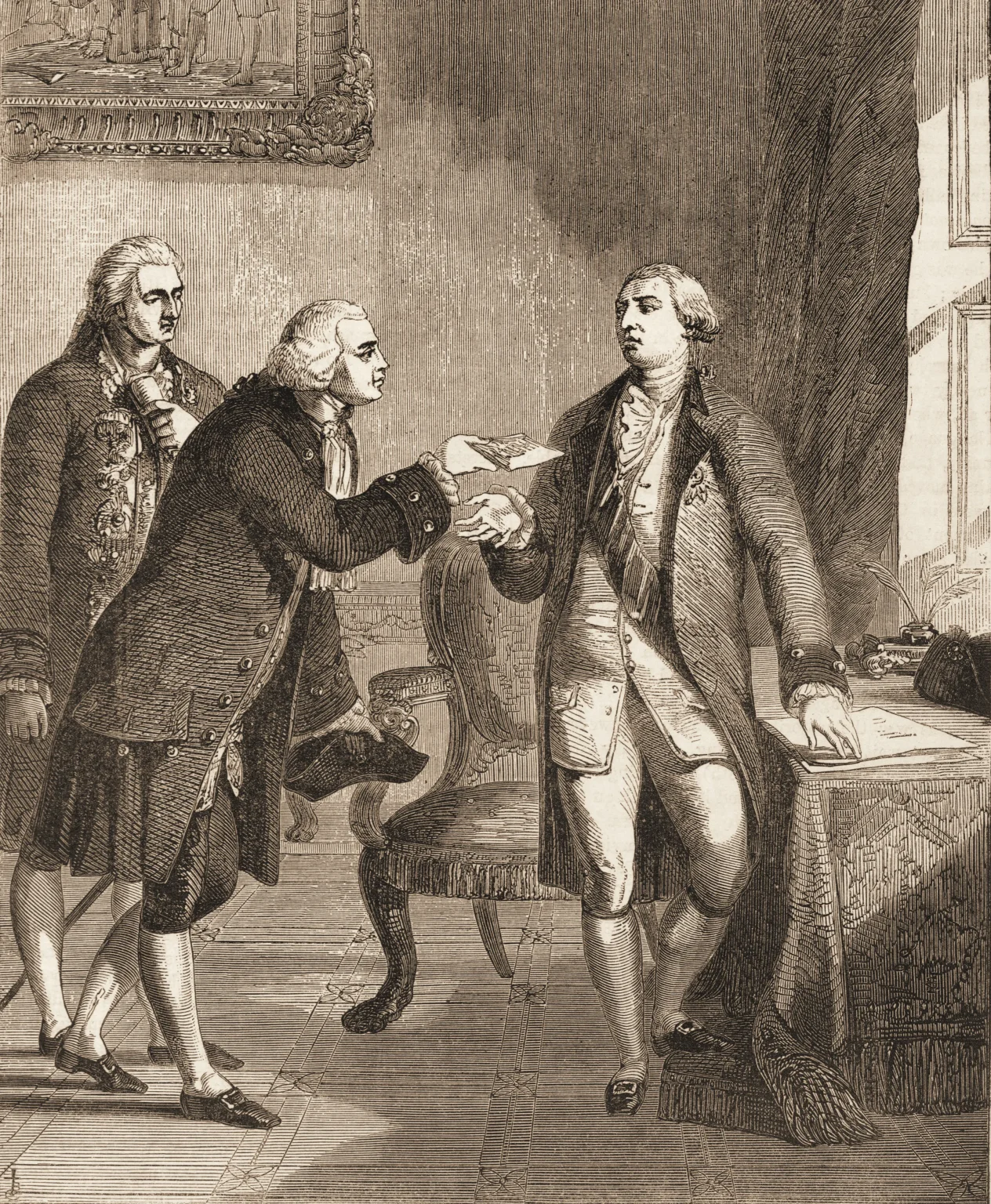On September 27, 1779, the Continental Congress selected John Adams to lead peace talks with Great Britain. Adams, a well-educated and passionate individual, expressed his diffidence in his abilities for the task in a letter to French diplomat Chevalier Anne-César de La Luzerne. Despite his initial reservations, Adams accepted Congress’ offer to negotiate peace with Britain, a role that he had not sought but embraced wholeheartedly. Adams, along with his sons, embarked on a challenging journey to Europe for this mission, facing a storm that almost sank their ship and requiring a strenuous overland trek through the Pyrenees Mountains.
Adams and his team arrived in Paris in February 1780 and eventually joined fellow Founding Fathers Ben Franklin and John Jay to negotiate with the British. With George Washington’s victory at Yorktown in 1781, the Americans negotiated from a position of strength, leading to the signing of the Treaty of Paris in 1783. This treaty formally recognized American independence, acknowledging the United States as free sovereign and Independent States and relinquishing Britain’s claims over American territory. The Treaty of Paris was a significant personal triumph for John Adams and his commitment to a nation governed by laws and not men.
John Quincy Adams, who reflected on his father’s dedication and sacrifice for American independence, noted that the Treaty of Paris represented the fulfillment of John Adams’ pledge to fight for a new nation. The Adams family’s commitment to the cause of freedom is commemorated in the “Church of the Presidents” in Quincy, Massachusetts, where both Adams presidents and their first ladies are entombed. The inscriptions on the monument above the altar honor John Adams’ unwavering dedication to the principles of independence and the establishment of a nation governed by laws.
Despite his initial diffidence, John Adams rose to the challenge of leading peace talks with Great Britain during a critical period in American history. His role in negotiating the Treaty of Paris in 1783, culminating in the recognition of American independence, solidified his legacy as a key figure in the American Revolution and the establishment of constitutional government. Adams’ bravery, determination, and commitment to the cause of freedom and self-governance continue to inspire generations of Americans as they reflect on his contributions to the founding of the United States.
The Treaty of Paris, signed in 1783, marked a turning point in American history and represented a significant diplomatic victory for John Adams and his fellow negotiators. The recognition of American independence and the relinquishing of British claims over American territory validated Adams’ tireless efforts to secure freedom and self-governance for the new nation. The legacy of Adams’ commitment to the cause of liberty and constitutional government endures in the annals of American history, serving as a reminder of the sacrifices made by the Founding Fathers to establish a nation dedicated to the ideals of freedom and individual rights.
In conclusion, John Adams’ pivotal role in negotiating the Treaty of Paris showcased his intellectual prowess, diplomatic skills, and unwavering dedication to the cause of American independence. His leadership during the peace talks with Great Britain exemplified his commitment to establishing a nation governed by laws and principles of liberty. The signing of the Treaty of Paris in 1783 cemented Adams’ place in American history as a Founding Father and key architect of the nation’s constitutional government. His legacy continues to inspire admiration and respect for his contributions to the enduring principles of freedom and self-governance that define the United States of America.













